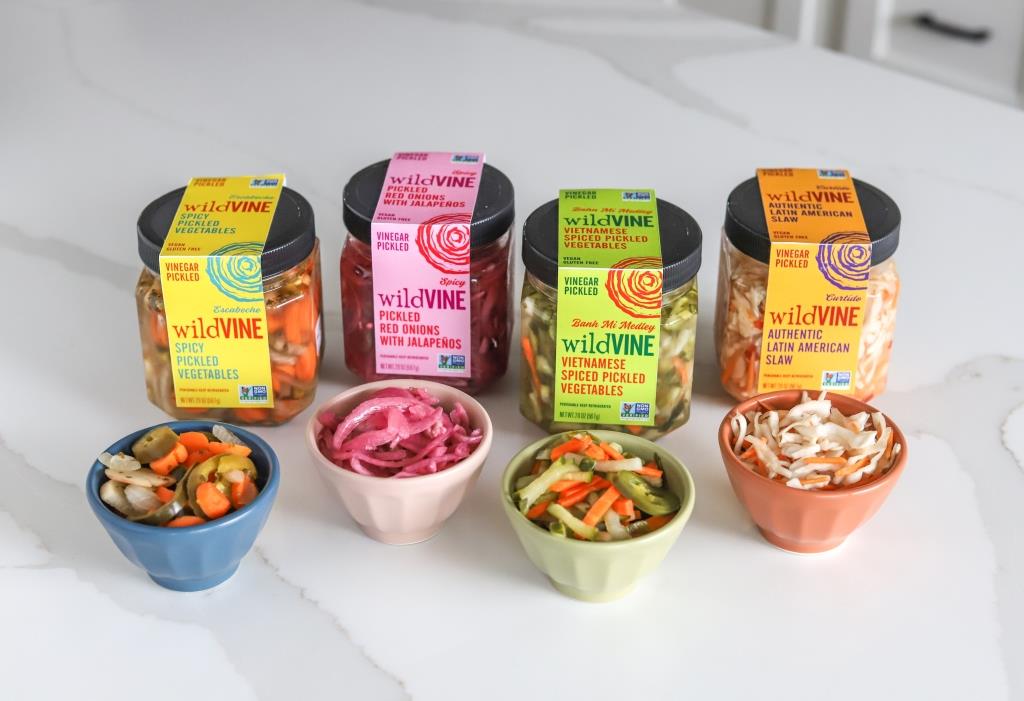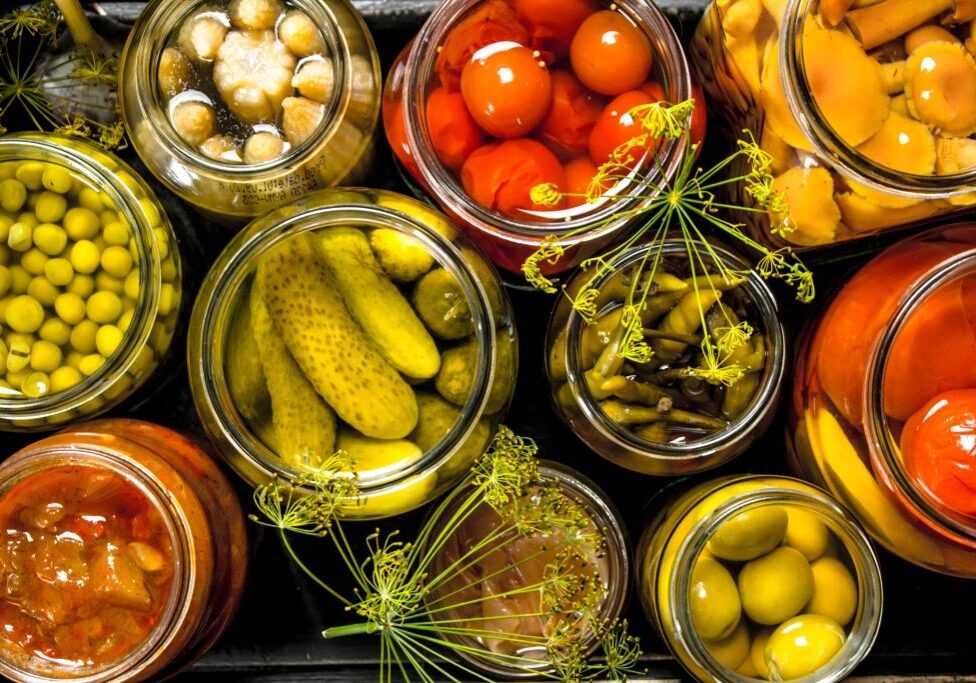When summer begins to fade into fall and produce keeps arriving at an epic pace, there is a remedy for all those field-ripened vegetables – and we’ve got more than a millennium of human ingenuity to thank for it. If you like a good story, open a jar of kosher dills, pull up a stool, and let us share a thought or two about the history of pickling foods.
Pickling Preserves Fresh Seasonal Foods for Use Year Round
If you’ve ever found yourself slight tipsy or “pickled” from enjoying one too many brews, then you probably have a pretty good inkling about how this time-tested preservation method works. According to the PBS series “The History Kitchen,” the word pickle is derived from the Dutch word “pekel,” meaning brine. Pickling vegetables involves letting them stew in acidic vinegar or salt water, select spices, and their own juices until they are delectably and delightfully soused – not unlike your guests at last year’s New Year’s Eve soirée!
History of Pickling Has Deep Cultural Roots That Go Way Back
Most people probably wouldn’t rank the lowly pickle among the transformative discoveries that have shaped human evolution, but we’re here to argue otherwise. The ability to preserve surplus harvests for times of scarcity – whether by drying, curing, fermenting, or pickling – played a crucial role in the shift away from nomadic lifestyles — where indigenous peoples had to follow migrating game — to permanent, agrarian communities. Being able to safely preserve and transport nutritious foods over long distances also paved the way for exploration and military conquests, which in turn, spread the knowledge of these newfound culinary techniques to the far corners of the world. Applauding this fact is PBS contributor Tori Avey, who points out that today’s adventuresome eaters can enjoy pickled and fermented delicacies from almost every port of call without ever leaving the comfort of their own kitchen: Eastern European sauerkraut, French cornichons, Middle Eastern olives, Russian tomatoes, Korean kimchi, Japanese plums and daikon, or Italian eggplant and peppers. But what we really want to know is “Who did it first?”
For answers, we turned to the National Center for Home Food Preservation. It appears the history of pickling may actually predate the advent of modern humans. Wild fermentation is thought to have been discovered (rather than invented) more the 6,000 years ago when ancient civilizations observed nature turning barley into beer and fruit into wine. Closely related, fermentation and pickling are sometimes used interchangeably. However, there is a key difference. Fermentation relies on naturally occurring lactic-acid-producing bacteria to kill off “bad” bacteria responsible for food spoilage, while pickling employs the acid found in vinegar, along with heat, to eliminate troublesome microorganisms. Both methods imbue foods with a telltale lip-pursing tartness, and both allow foods to be stored for months (fermented in the fridge; pickled in the pantry until opened) while still holding onto most of their substantial health benefits. Additionally, fermented foods contain live cultures, those “good” microbes that aid digestion and help keep our guts in tip-top shape.
The Chinese, Babylonians, Egyptians, Greeks, and Romans were all practitioners of these preservation techniques. But conventional wisdom points to the Tigris Valley in Mesopotamia around 2030 BC as the spot where the first cucumber (introduced to the area from northern India) was transformed into a crunchy, pucker-worthy pickle. And from that ignoble event sprang a long and rich history of pickling that’s littered with the names of famous (and some infamous) historical figures. Both the legendary Roman leader Julius Caesar and, centuries later, the French General Napoleon Bonaparte relied on pickled foods to sustain their armies and ward off diseases, such as scurvy, during their years-long military exploits. Columbus did the same when he sailed to the New World in 1492. By the Middle Ages, pickled foods had become an important winter staple throughout Europe, providing essential nutrients, as well as adding flavor and texture to ho-hum, cold-weather meals. Eventually, pickled foods made their way to America. As early as 1650, Dutch farmers were growing cucumbers in the area we now know as Brooklyn. And by the 1900s, it was common to see industrious street vendors selling pickles off pushcarts or right out of the barrel.
History of Pickling Features an Impressive List of Industrial Age Thinkers and Doers
A quick internet search reveals that those most responsible for advancing the culinary practice of pickling included several notable 18th and 19th century figures: French chef Nicolas Appert, who experimented with preserving vegetables, fruits, syrups, and jellies in wax-sealed, air-tight boiled bottles; Englishman Peter Durand, who pioneered the use of tin cans; Scottish chemist James Young, who patented paraffin sealing wax; and Philadelphian John Mason, whose name is synonymous with the heavy duty, heat-resistant Mason jar. And of course, there’s Louis Pasteur, who in 1864, revealed the science behind pickling by establishing a connection between bacterial microorganisms and food spoilage. But no name is more recognizable to contemporary foodies as that of the 19th century industrial food baron H. J. Heinz. Known as the “Pickle King,” Heinz made the pickle the star of the 1893 Chicago World Fair and a staple of every American pantry. Even today, the Heinz brand occupies prime real estate on the condiment aisle of most supermarkets.

Pickled Foods Add Variety, Flavor, and Nutrition to Your Diet
If the history of pickling tells us one thing, it’s that nothing goes better with a sandwich than a pickle. No picnic-style lunch is complete without a few classic bread and butter pickles, gherkins, or kosher dills. However, it’s worth noting that not every pickled food starts out as a cucumber. You might be surprised to learn that pretty much anything can be pickled.
Close your eyes and visualize a ginormous, table-size charcuterie board overflowing with vinegary jarred delicacies: red, hot sausages, soy and wasabi green beans, feta and cream-cheese stuffed olives, jalapeño asparagus spears, Cajun-inspired okra, jackfruit with turmeric and chili powder, and a particularly unique offering, balsamic blackberries with cinnamon and cloves – all irresistibly delicious and all pickled! If you’re an inveterate shopper and a fan of international or artisan food markets, you can find everything from offbeat pickled vegetables (beets, fennel, cauliflower, and eggplant) to summery pickled fruits (mango, strawberries, and peaches) to surprisingly tasty pickled animal proteins (prawns, chicken, hard boiled eggs, and yes, even pigs’ feet). Add in all the potential options of vinegar flavors, pickling spices, and food pairings, and the possibilities are endless.
Hot, mild, sweet, or sour, pickled foods are everything your palette craves. The acidic quality of the brine infuses food with a zesty tang you just can’t get any other way. Also, vegetables pickled fresh from the field or garden retain their natural crispness, as well as their beneficial nutrients. Finally, pickle juice is reportedly a favorite of athletes because it’s full of electrolytes that help maintain hydration and prevent muscle cramping.
If you’re interested in giving pickled foods a go, but don’t know where to start, we recommend trying wildVine pickled vegetables, our new line of specialty condiments inspired by traditional flavors from around the world. Not only do they taste great, they’re incredibly easy to order. Trust us, a whole new dining experience is just a click away!
So, while there may still be a chill in the air, that’s no reason to starve your body of the vitamins and essential minerals it needs. Grab a jar of your favorite pickled treat, spoon out a generous serving, and feel your body begin to regenerate. Then smile. Summer is just around the corner!
